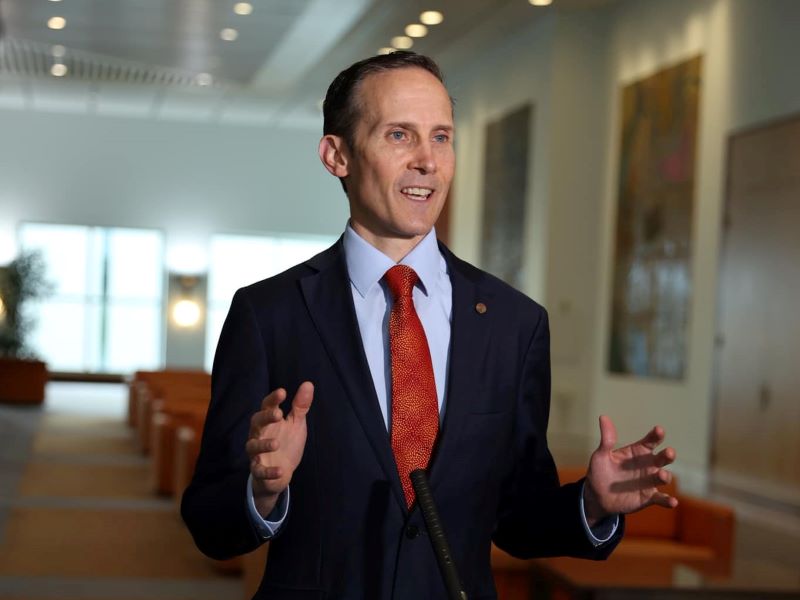Australia’s competition policy is going under the microscope at Treasury with the support of an outside taskforce, after warnings ineffective merger laws and digital platforms are dragging on productivity.
Treasurer Jim Chalmers and Assistant Minister for Competition Andrew Leigh on Wednesday announced the two year review by a new Treasury Competition Taskforce which will provide continuous advice to government for reform rather than a final report.
Supporting Treasury is an expert panel with Grattan Institute chief Danielle Wood and former competition tsar Rod Sims.
Ms Wood has warned Australia’s biggest and most profitable firms are largely untroubled by new competitors, while Mr Sims has led a push for a broad range of significant antitrust reforms, including to tackling digital platform dominance.

The Treasurer linked a lack of competition with Australia’s sluggish productivity and said more competition will be needed to lift it and wages growth.
“We give ourselves the best chance of making our economy more productive and more dynamic if we make it more competitive at the same time, and that’s what today is all about,” he said.
Mr Chalmers said the review priorities will be finding and defining competition reforms that increase productivity, reduce the cost of living for Australians, and boost wages.
Worker mobility, technology related issues, decarbonisation and the proposals put forward by the Australian Competition and Consumer Commission (ACCC) will be considered in the review, which comes after Mr Leigh has advocated for change over the last year.
Mr Leigh, an ANU economist, has called for a “zippier economy” with more job switching, business startups, innovation and genuine competition in a series of speeches and lectures that built a case for government intervention.
On Tuesday, he said the new review will look for practical reforms that can be implemented immediately and will have similar impacts to Paul Keating’s national competition policy reforms of the early 1990s, which were credited with significantly increasing household incomes.
“We seek to achieve the same sets of goals with this Competition Review, to find practical measures in which we can improve the competitive nature of the Australian economy,” Mr Leigh said.
“We understand that when there’s not enough competition, it’s the most vulnerable who suffer. The most disadvantaged who may not have a car to drive to another suburb for a better deal. If you’ve got a dodgy internet connection, it may be hard to shop around.
“And so, in ensuring that we have a more productive economy, we’re also looking after some of the most vulnerable in Australia.
“We’re looking after workers too, because increasing evidence on monopsony power suggests that increased power in firms can hurt workers.”
The Albanese government has already raised the penalties on anti-competitive conduct and banned unfair contract terms, but wants additional practical proposals from the review, which Mr Chalmers said will be acted on as quickly as possible.
“But this is not going to be… a two-year process where there’s nothing for two years, and then a big report at the end of it,” he said. “It will be iterative, it will be methodical, we’ll work through the issues in a sequenced way.
“If we need to bolster the people that we point to the expert panel, we’re prepared to do that. Where there are opportunities to do parts of this agenda sooner rather than later, we’re open to that as well.”
Rod Sims, who led the ACCC for more than a decade, has pushed for stronger merger laws and criticised the current lack of a formal approval system and onus on the regulator to prove future negative consequences to stop takeovers.
Ms Wood last year also backed the calls for a closer look at competition policy and Australia’s merger laws, saying it would restore a more dynamic business sector.
“Making sure that Australia’s competition laws are fit for purpose is part of the response. Healthy competition is not just about lower prices, but the relentless quest to innovate to deliver new and better products and services,” she said.
The Intergenerational Report, to be released Thursday by Mr Chalmers, is expected to highlight the critical role of competition for revitalising productivity growth.
Do you know more? Contact James Riley via Email.

